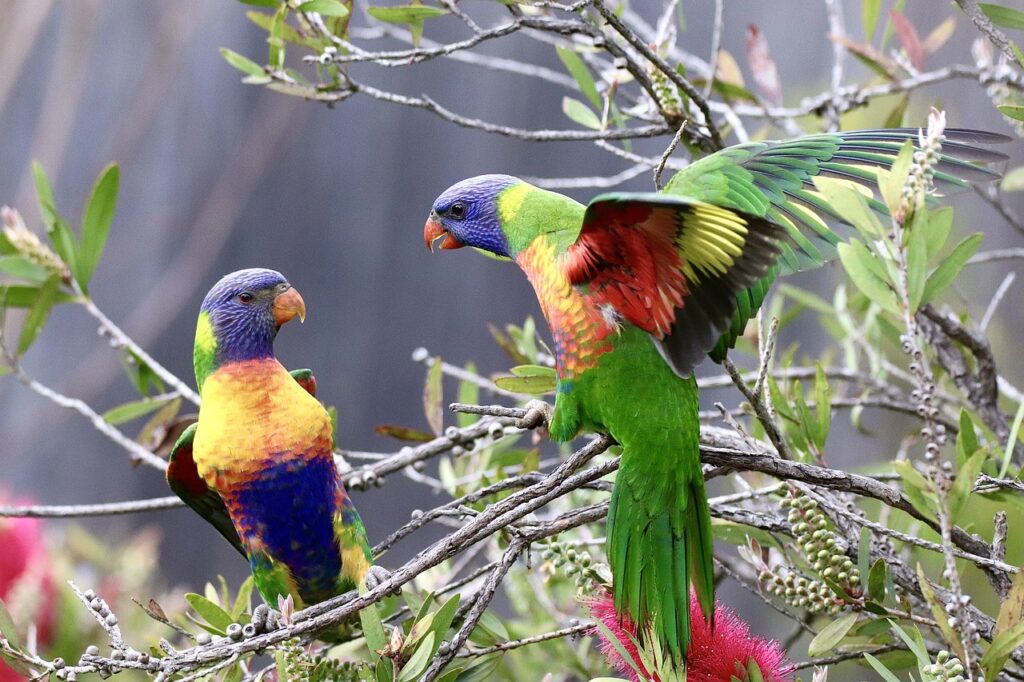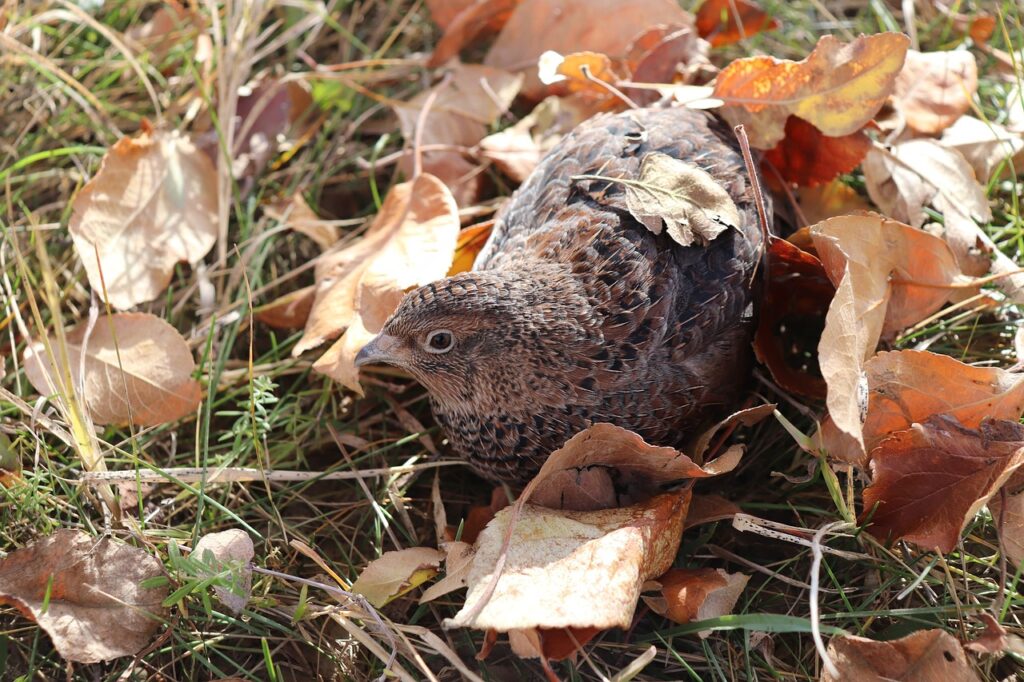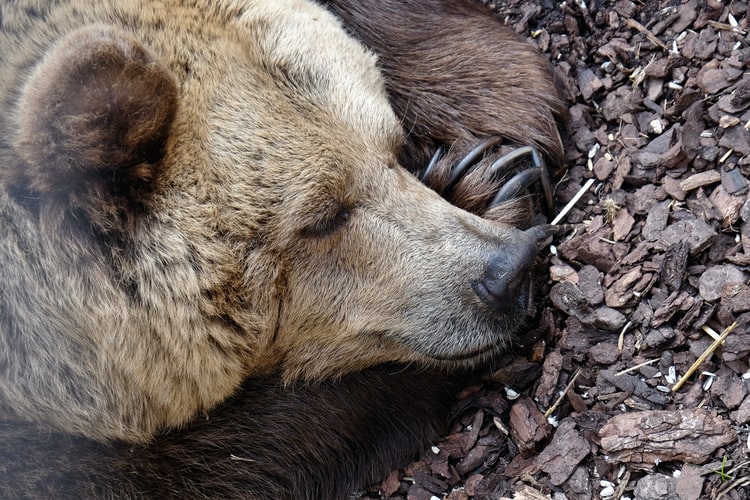Going for a bushwalk, listening to birdsong, and observing animals in their natural habitat is said to reduce stress and anxiety.
I was once at a campsite prepping for afternoon activities when a camper claimed that he’d seen a snake slithering on the main path. Now, the problem was that most of our campers were teenagers that walked along that path multiple times a day to access their cabins.
Concerned for their safety, I had to investigate for myself and lo and behold I glimpsed the snake—a juvenile—poking its head out from its hiding place.
Seeing that brown snake in its natural environment did nothing to reduce my blood pressure, nor did it transport me to a state of bliss.
The fact is that Eastern Brown Snakes (and their offspring) can kill humans with their poisonous venom.
Someone had to do something. Someone had to step up. That someone was . . . not me.
One of my brave colleagues though, armed with only a garden rake, coaxed the snake out of its nest. After an awkward dance between sweaty human and hissing snake, the deadly creature slithered onto the rake, looping its sleek body into a tight coil around it.
Quick thinking brought my colleague to whack the rake a few times into the mouth of a large otto bin. Once the snake uncoiled itself from the rake, the lid was slammed shut. *Cue hero music*
With the snake secured, a camp staffer took the bin deep into the scrubland to set the snake free. It was only after hearing the rumble of the otto bin’s wheels churning over twigs and rock that I finally relaxed.
Most of the time, being in the presence of greenery and observing wildlife does have a soothing effect on the senses.
With the first home my husband and I settled in, the previous owner was all green thumbs. Thus, we inherited a thick hedge of crimson bottlebrush flowers that led right up to the front door.
I admired this pretty hedge but loved it even more at sundown when flocks of Rainbow lorikeets would descend and feed on the nectar from the flowers.
Watching them tuck into their evening meal gave me a sense of deep satisfaction, and a nice little dopamine kick from just looking at their colourful feathers weaving against green leaves and red flowers.
But what if I had come home from work one day and found these beautiful birds motionless, unblinking, and scattered all over the ground? Any normal person would be distressed, and maybe even resentful towards the neighbourhood cats scavenging on the downpour of fresh food.
I never did, but in recent years, the scenario I’ve described has become a normal summer occurrence in many parts of NSW and Queensland. Concerned citizens place the birds in shoe boxes and drop them off at RSPCA’s wildlife hospital or WIRES wildlife rescue centres.

Since the beginning of this year, over 5,000 of these colourful parrots have been taken in for treatment. These cases of Lorikeet Paralysis Syndrome (LPS) have increased dramatically.
The vets and volunteers put them through a rehabilitation process where the parrots are given fluids and glucose, and the toxins are flushed from their bodies.
Even with concerted efforts to save them, some lorikeets never make it, and some are euthanised.
Researchers are confident that what’s causing these birds to fall is not due to pesticides or an infectious disease. LPS is believed to be a toxin in either fungus or bacteria that forms on plants and fruit that the lorikeets feed on.
Reading articles on this unusual occurrence turned my thinking towards the biblical account of birds falling from the sky.
Let’s turn our attention now to Psalm 78.
Building Faith
Psalm 78 is an invitation to grow in faith. It is a historical psalm reflecting on the Lord’s wondrous miracles that He performed on behalf of his people.
An abundant life is one that stems from a rich and meaningful relationship with the Almighty. We know that a stable relationship is founded on trust. Time and time again God revealed His trustworthiness and unfailing love through His provision and protection for His chosen ones.
For our confidence in Him to flourish, and for future generations to develop their faith, we must remember all the good things God has done on our behalf. We must like the hymnist wrote, “Tell of His excellent greatness”.
The natural outflow of this awe and confidence in God is that we become more desirous to do His will.
That they might set their hope in God, and not forget the works of God, but keep his commandments. Psalm 78:7
Remembering God’s love and care for His children
Wasn’t it the Lord who liberated His people from the lash and the whip, from baking bricks with reduced resources, from punishing production quotas, from relentless hardship imposed by their Egyptian oppressors?
Wasn’t it the Lord who confronted Pharoah and demonstrated His supreme power and righteous judgement by sending a series of plagues upon the Egyptians and their false gods while shielding His people from destruction?
Wasn’t it the Lord who turned the Nile River to blood rendering the Egyptian water supply undrinkable? Wasn’t it the Lord who infested Egypt with frogs, gnats, flies and locusts?
Wasn’t it the Lord who sent disease upon the livestock, festering boils upon both man and beast, thunderstorms of hail and thunder, three days of utter darkness, and the death of all firstborn males?
Wasn’t it the Lord who split the Red Sea so His people could walk through it on dry land to escape Pharoah’s army?
Wasn’t it the Lord who dislodged their enemy’s chariot wheels, and overwhelmed Pharoah’s soldiers by collapsing the Red sea back down upon them to seal them in watery graves?
Wasn’t it the Lord who guided them through the wilderness by a giant cloud which sheltered them from the heat of the day? Wasn’t it the Lord who comforted them with a glowing cloud of fire by night?
Wasn’t it the Lord who quenched their thirst by cleaving massive rocks in the desert, so fresh water gushed like a living stream?
Wasn’t it the Lord who opened the doors of heaven and rained down manna to fill their bellies every day?
The obvious answer is yes. It was the Lord who redeemed them from slavery. It was the Lord who provided and cared for them in the wild, and it was the Lord who guided them on their journey to their new homeland.
Selective Amnesia
When we choose to forget God’s great and marvellous works, and when fail to enjoy Him for who He is, we will doubt His goodness. We will inevitably sin against him, just like the children of Israel.
And they sinned yet more against him by provoking the most High in the wilderness.
And they tempted God in their heart by asking meat for their lust.
Yea, they spake against God; they said, Can God furnish a table in the wilderness? Ps 78:17-19
They forgot that they were once slaves, and now they were slaves once again, but this time to their own stomachs. They received God’s miraculous provision for food in the form of a daily supply of manna, but they wanted more.
They wanted meat.
And they questioned the Lord’s ability to provide for them what they needed, despite all the miracles they had experienced firsthand.

A Special Delivery
He caused an east wind to blow in the heaven: and by his power he brought the south wind.
He rained flesh also upon them as dust, and feathered fowls like as the sand of the sea:
And he let it fall in the midst of their camp, round about their habitations, Psalm 78:26-28
God provided meat in the form of a spectacular airdrop of quail by redirecting their migration patterns. These small, plump birds lacked the power to cover vast distances, so they often glided with the wind for parts of their journey to conserve energy.
God merely had to change the direction of the wind currents.
As a result, the Israelites received a month’s supply of quail to satisfy their longing for meat, to silence their whining over only having manna to eat, and to end their romanticising over their life back in Egypt.
Ye shall not eat one day … But even a whole month, until it come out at your nostrils, and it be loathsome unto you: because that ye have despised the LORD which is among you, and have wept before him saying, ‘Why came we forth out of Egypt?’. Numbers 11:19-20
Collecting the quail
The quail were blown by a sea wind over the camp of the Israelites. After their prolonged flight, these small birds were so exhausted that some fell directly to the ground.
Others flew down to about a metre off the ground. At this level, the Israelites could catch them with their bare hands.
The birds were in abundance.
And the people stood up all the next day, and all that night, and all the next day, and they gathered the quails: he that gathered least gathered ten homers: and they spread them all abroad for themselves round about the camp. Numbers 11:31 & 32
They spread the birds all around the camp in line with the Egyptian practice of drying out the meat before preparing it for a meal.
God’s judgement upon their insatiable desires
Bombarded with all the meat their hearts desired, there were some Israelites that were still not satisfied with God’s generous provision.
They were not estranged from their lust. But while their meat was yet in their mouths, The wrath of God came upon them, and slew the fattest of them, and smote down the chosen men of Israel. Psalm 78:30-31
Numbers 11:33 tells us that God’s judgement upon them came in the form of a great plague which killed those whose desires could not be met with an ample supply of meat.
From their failings, we learn the importance of exercising self-control over our desires. We learn to be more intentional in practicing gratitude towards God.
We must teach those that come after us to trust His ways and His provision. We must remember the Lord is Jehovah Jireh—our provider.
We must teach the next generation about God and His mighty works.
That they might set their hope in God, and not forget the works of God, but keep his commandments; Psalm 78:7
Bibliography
Author unspecified, 2022. ‘What were the quail mentioned in the Bible?’, Got Questions. Retrieved 1 August 2024 from
https://www.gotquestions.org/quail-in-the-Bible.html
The Archaeology Study Bible, 2017, Crossway, Wheaton, Illinois.
Chukar. 2016, ‘Sandgrouse or Quail?’, Santa Monica Bay Audubon Society, Retrieved August 1 from
Dunigan, M. 2024, ‘Hundreds of Rainbow Birds Fell ‘Paralyzed’’, The Dodo, Retrieved August 1 from
Henry, M. 1961, Commentary on the Whole Bible, Zondervan, Michigan.
Macarthur, J. 2019, The Macarthur Study Bible 2nd Edition, Thomas Nelson Publishers, China.
Pfeiffer C,F. 1990, The Wycliffe Bible Commentary, Moody Publishers, Illinois.
Readfearn, G. 2024, ‘What’s paralysing thousands of rainbow lorikeets?’, The Guardian, Retrieved August 1 from
The Quest Study Bible, 1994, Zondervan Publishing House, Michigan.
Unger, M.F. 1988, The New Unger’s Bible Dictionary, Moody Press, Chicago.
Walton, J. 2000, The IVP Bible Background Commentary Old Testament, IVP Academic, Illinois.


